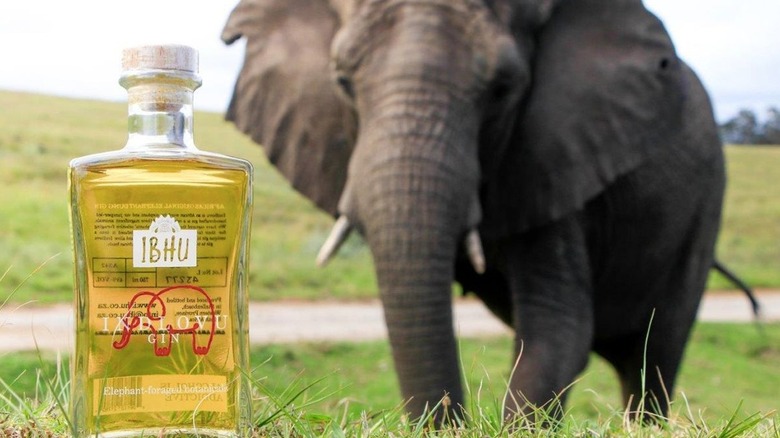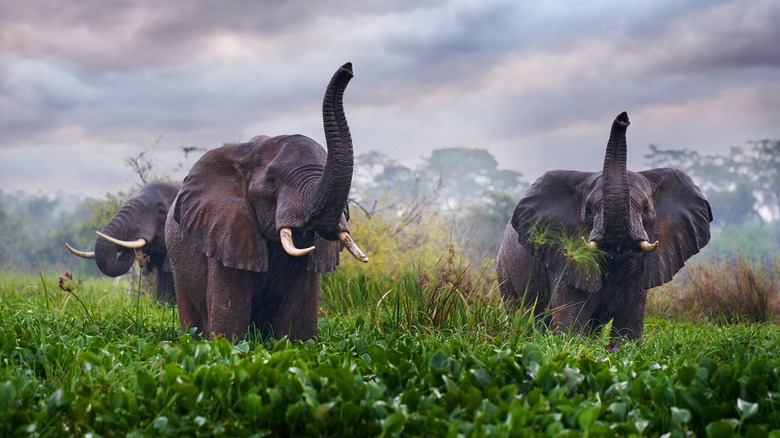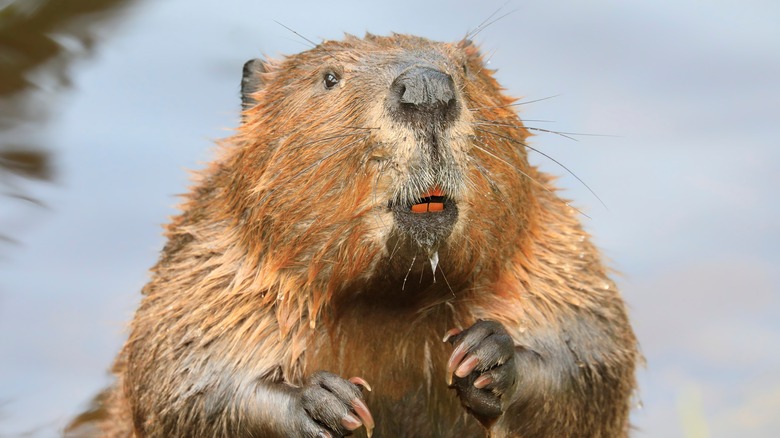The South African Gin That's Made From An Unexpected Elephant Byproduct
Gin is one of the most popular liquors available worldwide, and it's easy to see why. The gin and tonic cocktail is famously considered refreshing, and a perfect compliment to a summer's day.
Made from juniper berries, gin originated in Italy and the low countries and was (like a lot of classic alcoholic beverages) first brewed by monks who were bored and looking for something to do. It later became the national drink of England after the coronation of William of Orange led to import restrictions on French brandy. Today, it's one of the basic spirits everyone who drinks generally has in their cabinet, on the same level as vodka, tequila, rum, and whiskey.
You may have had gin before, but you probably weren't expecting that there's gin made from ... well ... there's no easy way to say this: an elephant's butt byproducts. That, however, is exactly what Indlovu gin is.
How is elephant poop gin made?
It may seem like a truly wild concept, but it does make some sense once you dig down into the guts of the issue (sorry, sorry). African elephants eat a varied herbivorous diet consisting of trees and shrubs — and all of the various byproducts of those plants. They can't digest a large portion of it, and as a result, nearly 50% of what they eat gets left behind intact in their excrement. These resulting intact items, including bark, fruit, flowers, seeds, and roots, are collectively known as botanicals.
The rest of the process is pretty straightforward. People from Indlovu (named after the regional Nguni word for "elephant") find poop from the world's largest terrestrial animal, then dry and wash it to remove all the waste. What's left behind gets dried and sterilized, then added to gin during the alchemical process.
Apparently, these botanicals give the resulting drink a smooth, earthy taste that does not in any way resemble the leavings from which the whole endeavor started.
This isn't the only food item made using animals' byproducts
The wild thing is this isn't even close to the first time an animal's butt secretions have been used in a food product. Before real vanilla became cheaper and easier to obtain, a beaver byproduct called castoreum was used to simulate the flavor/scent in both food products and perfume. It's important to note that castoreum isn't really used anymore (at least not in food, where its usage was largely restricted to the early 1900s), but for a while, it was extremely common.
Then there's kopi luwak, the pricey coffee made from civet poop. A small, weasel-like animal native to Africa and Asia, civets eat coffee berries, and the resulting gastric process creates partially-undigested beans. Those beans are used to create the high-end finished product known as kopi luwak. However, concerns about kopi luwak and animal cruelty (the process used to make them is similar to how we get foie gras) led to its fall from grace.
Thankfully, though Indlovu gin may seem odd, there's no mistreatment of elephants involved. People just harvest their leavings, and that's that.


